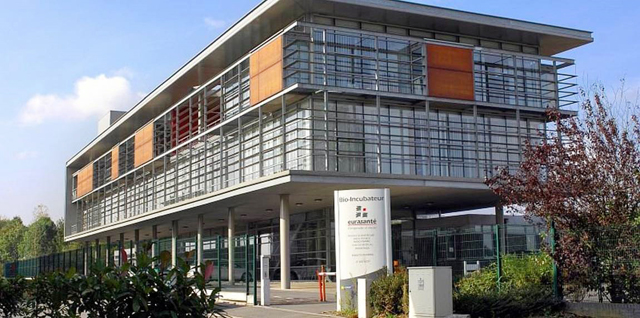TMU and University of Lille, establish French startup “InVenis Biotherapies”
Source: Office of Business Development
Published on 2022-08-24
Professor Thierry Burnouf (白台瑞), the Associate Dean of the College of Biomedical Engineering at Taipei Medical University (TMU) and Dr. David Devos, Professor of the University of Lille in France (ULille), jointly conducted the research on “human platelet lysate for the treatment of neurological diseases in the brain and its clinical application.”
This technology was co-developed by five TMU students, including Ming-Li Chou (周明莉), Yao-Ting Ethan Hsieh (謝耀霆), Ouada Nebie, Liling Delila, and Ariunjargal Nyam-Erdene, when they were studying for their dual degrees at the University of Lille. Patents for the technology have been applied for in 13 countries, with TMU and ULille listed as the co-applicants, and subsequently, a spin-off company, “InVenis Biotherapies,” was established in France.
The name, “InVenis Biotherapies”, refers to inventions related to veins, highlighting the motivation for developing blood-derived biotherapeutics. InVenis Biotherapies was co-founded in June 2021 by four founders, including Professor Thierry Burnouf, who specializes in blood therapy products; Dr. David Devos, professor of pharmacology and a neurologist at ULille and at the French National Institute of Health and Medical Research (Inserm); Dr. Caroline Moreau, a professor of neurology at ULille, Inserm, and at the Lille University Hospital; and Dr. Matthieu Fisichella, the CEO of InVenis Biotherapies and a professor of bioengineering.

InVenis Biotherapies laboratories
InVenis Biotherapies, a spin-off startup, has become a leader in neuroregenerative medicine by preparing platelet lysate for the treatment of the early symptoms of amyotrophic lateral sclerosis, also known as ALS. ALS is a rare brain disease with an average survival time of 3 years following diagnosis, and the only available treatment can prolong survival by up to 3 months. Following this initial clinical achievement, InVenis Biotherapies will expand its treatment to other neurological diseases caused by neurodegeneration (e.g., Parkinson’s Disease) or external brain injuries (Traumatic Brain Injury). Brain diseases, especially neurodegenerative diseases such as Parkinson’s, Alzheimer’s, ALS, multiple sclerosis (MS), etc., are a major challenge for society, affecting millions of patients each year.
The therapies developed by InVenis Biotherapies take advantage of the multifaceted neurophysiological protective and neuroregenerative activities contained in platelets. Platelets are physiological reservoirs of neurotrophic factors and neurotransmitters that stimulate major pathways for neuronal survival and communication, and prevent neuronal death. And the patent jointly filed by TMU and ULille is expected to help the development of a platelet lysate suitable for the treatment of the central nervous system, with the hope of applying it to the brain via the intracerebroventricular, intracranial, or intranasal route, depending on the presentation and severity of the disease.
The potential neuroprotective efficacy of this InVenis platelet lysate product in neurons has been demonstrated in various cell lines and animal models of Parkinson’s, ALS, and Traumatic Brain Injury. The results have been published in 12 leading scientific journals, including publications with a focus on the brain and biomaterials. The product has been recently funded by the French tech company, La French Tech, and raised €3 million to continue preclinical development, as well as ensure adherence to Good Manufacturing Practice (GMP) principles during the production of platelet lysate, which will be used for the purpose of regulatory approval for a Phase I/II clinical trial in ALS patients. The clinical trial is expected to be conducted between Lille University Hospital and the Taipei Medical University Healthcare System.

InVenis Biotherapies headquarters

